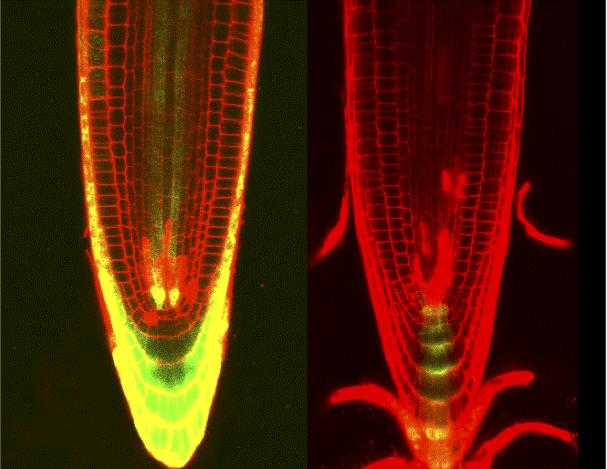Researchers from Nara Institute of Science and Technology find that control of the plant hormones cytokinin and auxin help damaged plants to minimize cell death while maintaining their genomes and organ development
Ikoma, Japan – Humans pride themselves on being able to multitask, especially under pressure. But it turns out that we aren’t the only ones who are organized: researchers from Japan have discovered that plants balance genome maintenance with organ growth by organizing different responses to DNA damage.
In a study published in Science Advances, a research team led by Nara Institute of Science and Technology has revealed that plants use combined control of the plant hormones cytokinin and auxin to organize DNA damage responses while maintaining growth.
Plants are highly adaptable organisms that never stop growing, thanks largely to the functions carried out by their roots. Because of the essential role that roots play in plant growth, root development is highly responsive to fluctuating conditions underground, including environmental stresses. These stresses tend to limit root growth, and can damage DNA.
“Plants actively respond to DNA damage, and these responses are controlled by the cell cycle checkpoint mechanism,” says project leader Masaaki Umeda. “The cell cycle is stopped at a certain stage so that DNA can be repaired, or in extreme cases, cell death initiated. What we wanted to know was how the DNA damage responses are organized to allow continuous root growth.”
Unlike animal cells, plant cells aren’t mobile, so plants can’t replace dead cells with surrounding living cells. To simultaneously maintain their genomes and allow organ development, plants initiate different DNA damage responses that are dependent on the different types of cells in tissues.
“We found that the combined control of two plant hormones, cytokinin and auxin, organizes different DNA damage responses at the cost of minimized cell death,” explains first author Naoki Takahashi. “This is a sophisticated way to retain stem cells while maintaining their genomes in damaged plants.”
A decrease in auxin triggers stem cell death and stops the cell cycle at the G2 phase, while increased cytokinin signals support early endoreplication – a cell cycle variant where the genome is duplicated without cell division.
###
Resource
Title: Alterations in hormonal signals spatially coordinate distinct responses to DNA double-strand breaks in Arabidopsis roots
Authors: Naoki Takahashi, Soichi Inagaki, Kohei Nishimura, Hitoshi Sakakibara, Ioanna Antoniadi, Michal Karady, Karin Ljung & Masaaki Umeda
Journal: Science Advances
Information about project leader Umeda’s lab can be found at the following website: https:/
Media Contact
Takahito Shikano
[email protected]





